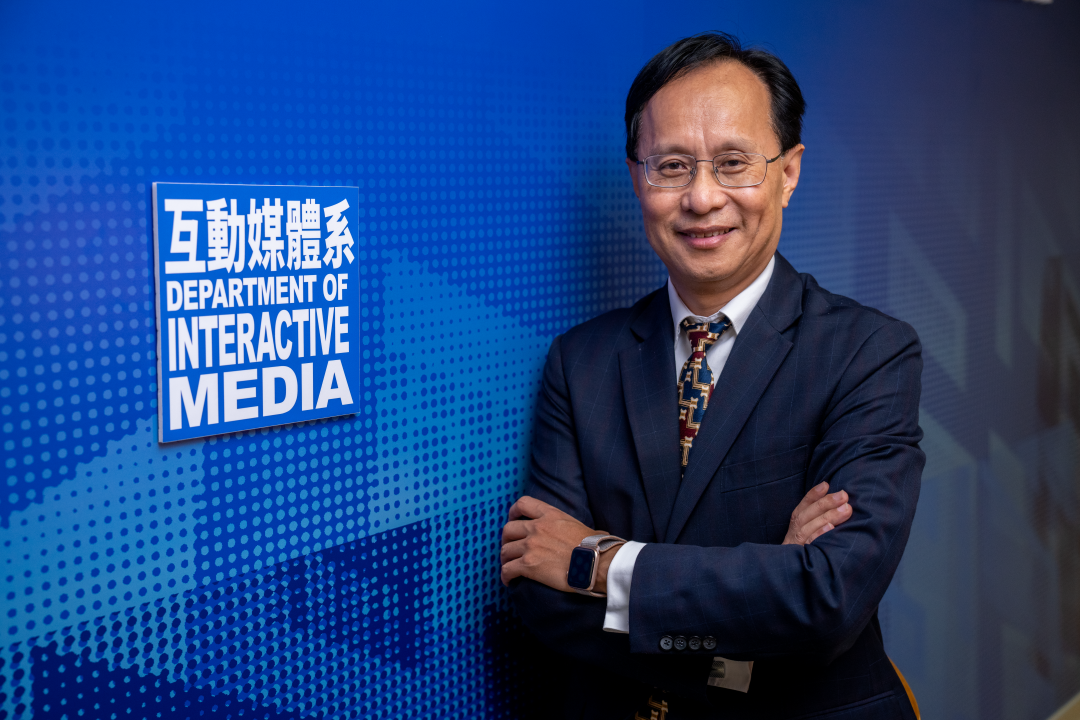Published: 2023-11-02
As Artificial Intelligence (AI) is gradually getting incorporated in a myriad of professional fields and has begun to infiltrate personal lives, the buzz about AI has transcended the realms of technocrats to pique the interest of the general public. Public opinions, across the world, about this new and mysterious technology oscillates between admiration for its limitless possibilities, skepticisms about its potential threats, and indifference to its growing ubiquity. In Hong Kong, Artificial Intelligence has taken centre stage in major sectors of the city’s economy, but how do residents perceive AI technologies? To what extent are they willing to integrate AI into their learning and working environments? What factors shape their attitudes towards AI? A recent large-scale survey conducted by a team of researchers in the School of Communication shed light on these issues.
AI as a source of social curiosity?
Led by Bu Zhong, Professor and Head of Interactive Media Department, and Jolie Shi, Assistant Professor, Interactive Media Department, the study titled “Public Responses toward Artificial Intelligence in Hong Kong” investigates the attitudes and responses of Hong Kong citizens toward the development of Artificial Intelligence and its broader social implications. A significant observation from this study is that there is a shift in perspective about AI from a mysterious technological phenomenon to an object of social curiosity, generating widespread interests and discussions among Hong Kong residents.
 |
Bu Zhong, Professor and Head of Interactive Media Department |
“Our findings indicate that AI development is no longer confined to the realm of tech enthusiasts; it has become a topic of interest and concern for a broad spectrum of Hong Kong society”, Zhong explains. It was further observed that Hong Kongers, regardless of their age, gender, education background, social status, or their knowledge of information technologies, are rather receptive of AI technologies. Majority of residents expressed their support for AI development, firmly believing that it holds long-term benefits for the society and humanity in general.
The role of news media
Another major discovery from the research is the correlation between individuals’ exposure to AI-related news reports and their support for the development of AI technologies. Both traditional and new media platforms play significant roles in shaping attitudes of Hong Kong residents towards AI. Summarily, the more people consume AI-related news and information, the better they tend to support AI development, and the more they feel at ease using AI for work and in their personal lives. “As people become more informed about AI, they are increasingly inclined to embrace its potential benefits”, Zhong notes.
 |
Jolie Shi, Assistant Professor, Interactive Media Department |
These findings suggest that Hong Kong residents are not only supportive of AI but also responsive to media coverage about AI, underscoring the need for continued education and awareness-building efforts in the field of AI in Hong Kong. This study offers valuable insights that are significant to policymakers, educators, and news media outlets. “The willingness of individuals and organizations to embrace AI solutions in Hong Kong is crucial to the development of policies that will foster the development and incorporation of innovative AI technologies in the city”, Shi concludes.
As AI continues to shape various aspects of our society, this ongoing research serves as a timely reminder of the importance of keeping the public well-informed and engaged in discussions surrounding its development and impact.